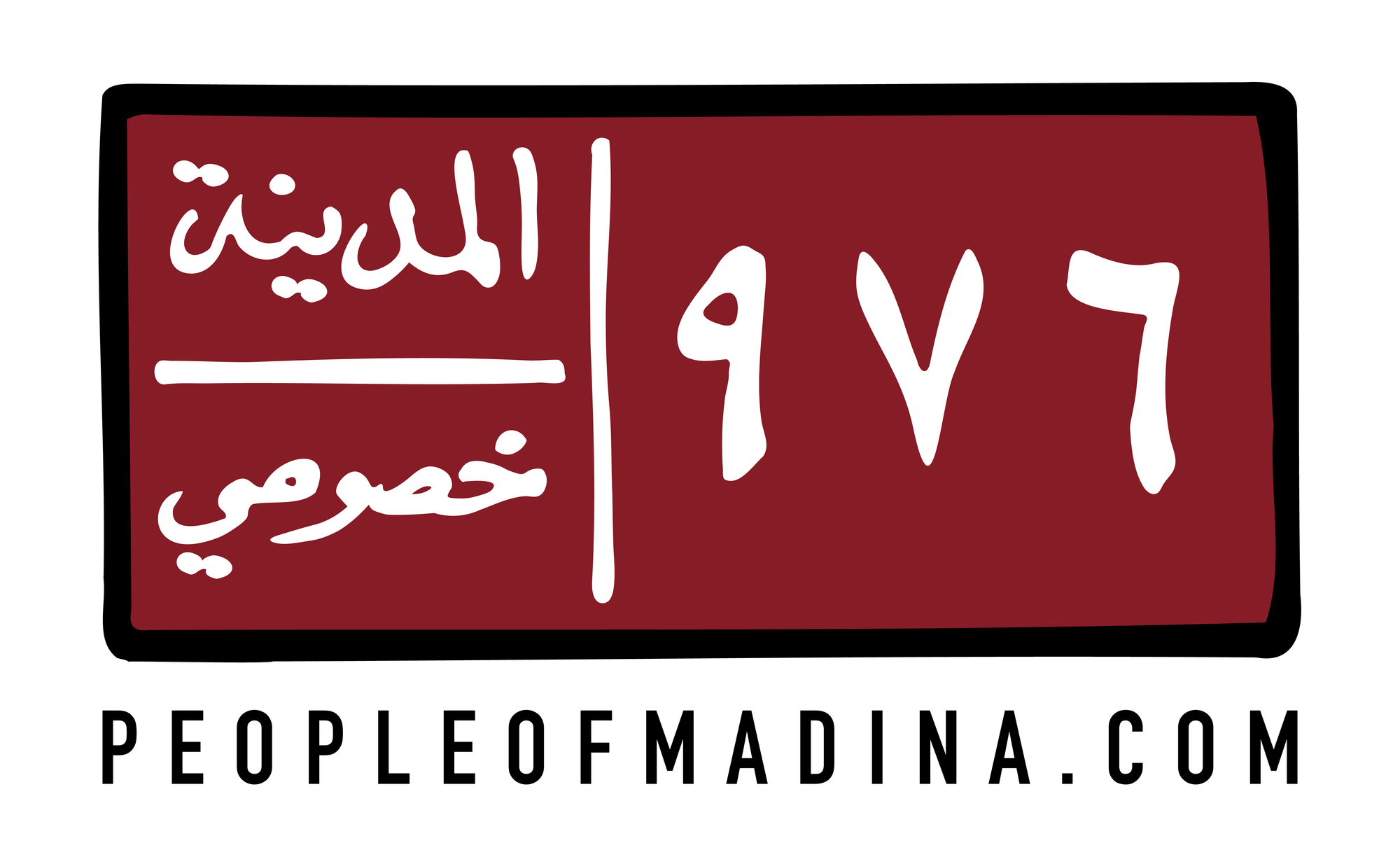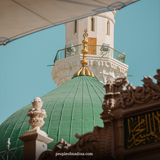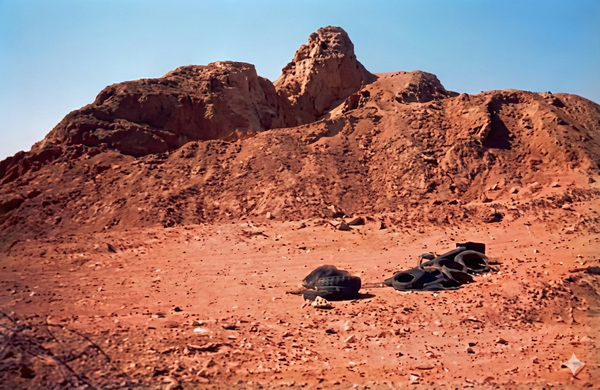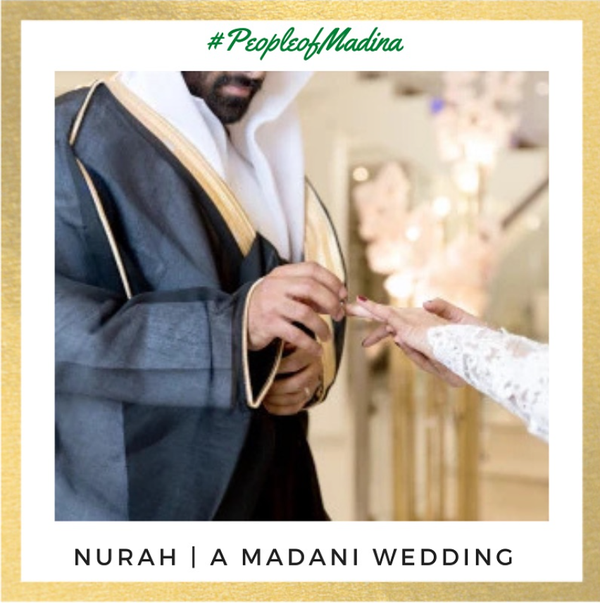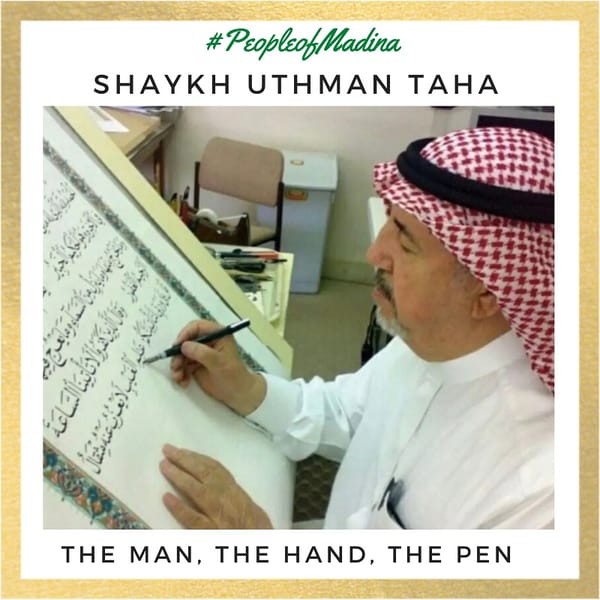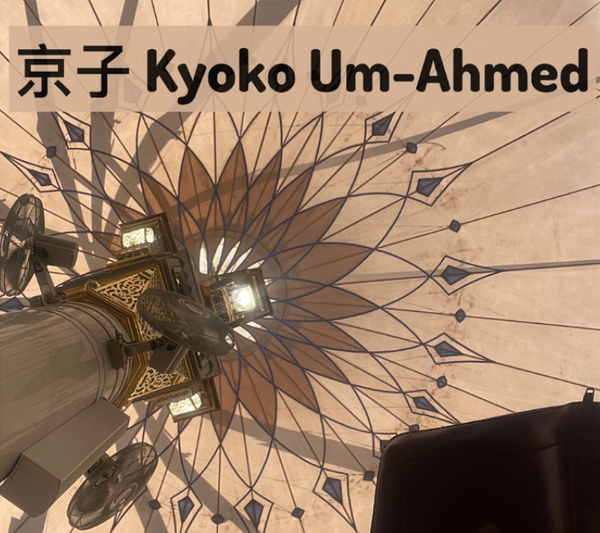Fatima Bashir, Madina al-Munawara
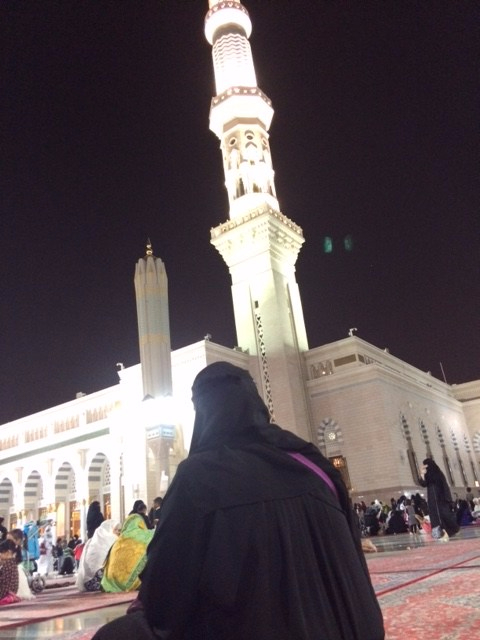
I was born in Madina and have spent most of my life here, alhmaduliLah.
Family Background
My father came to Madina three years before I was born from Sudan, with my mother to study for his Masters degree in Islamic studies. After three years, once my father had completed his studies, he was offered a good job in al-Jubail, in the Eastern Province near Dammam. My father really hated to leave Madina but it was a good opportunity for the family so we moved and he began teaching Islamic Studies in an elementary school there.
Return to Madina
We lived in al-Jubail for nine years. My father had always wanted to return to Madina and when the ‘Saudization’ process started there, foreigners had to be replaced by Saudi teachers. So we returned to Madina when I was in the sixth grade; 11 years old. My youngest brother was born here, a year after we returned.
Whilst in al-Jubail, my father had set up a business with a partner in Madina selling car parts. He had been wiring money to this partner who he trusted a lot but he wasn’t very straight-forward and took most of the money and left the shop with parts that weren’t sell-able. My father was depending on the shop for an income when we returned to Madina but it wasn’t making any money, despite the money my father had invested into it.
We lived in Harra al-Gharbiya, an area close to the Haram upon our return. We moved between a couple of furnished apartments during that time. One of them is no longer standing and has been demolished.
Father’s Passing
One day, two years after we had returned, when my little brother was one years old and I was thirteen, my father suddenly began feeling unwell. He suffered from high blood pressure from before we moved to al-Jubail, but his health was generally ok. It was Muharram and people were fasting Ashura. My father was fasting the ninth and tenth and I was fasting the tenth and the eleventh. My two brothers were on their way to the Haram and my father told them he would meet them there at isha and return home with them. We had iftar together and then my father left for isha. That was the last time I ever saw him.
When he got to the Haram, he prayed and afterwards felt short of breath. An ambulance was called which took him to al-Ansar Hospital. My brothers returned home that evening and told us that my father wasn’t feeling too well and was in hospital, but that he was ok. He stayed in hospital for two days and on the third, passed away. I remember, it was a Thursday after maghrib. I’m not sure what happened exactly; my brothers were the ones who had been going to the hospital. The female members of the family, including my mum, did not manage to see him. It was difficult; we didn’t have family in Madina nor access to a car to take us there and Mum wasn’t the type of woman that moved around without her husband. She had gone everywhere with him. She wasn’t an independent woman; she was a very simple lady. And to be honest, we thought our father would be home soon. I had even been thinking of the kind of party I would have when he returned. But he didn’t come back. It was so sudden and so unexpected.
That night, when my brothers returned home after isha, they told us that my father was in a coma. They didn’t say that he had passed away. We had Sudanese friends whose father had been in a coma for a while and then passed away, so the men downstairs told my brothers to tell us this because they thought it would be easier on us. But Mum knew this wasn’t the truth. She said, “I know he isn’t ok. Tell me what’s happening”. Then they told us. It was such a tremendous shock for us all. We were all in disbelief.
Some women stayed over that night for support. Mum didn’t cry at all then. The next day, after Juma prayers, once the necessary paperwork had been completed, my father was prayed over and buried in Baqi. My brothers returned from the Haram and told us. It was then Mum started to cry. This was the first time I ever saw her in this state. It was such an incredibly depressing time. We missed our father so much. He had been everything to us.
Difficulties
Lots of changes happened in our life after our father’s passing. We didn’t have much money and had to move out of our apartment because the rent was too much. Then, we had to sell my father’s car, which we sold very cheaply. My eldest brother was still in High School and the responsibility was a lot for him to suddenly take on and he was inexperienced in most things. We also sold my father’s shop and lived off the money from the sale for a while until it ran out. The stress was too much for Mum. She was so worried because we didnt have an income or anyone supporting us. We moved three of four times in one year alone, from one apartment to another because we didn’t have the rent most of the time. My father’s friends helped us as much as they could but it wasn’t a permanent solution.
After Mum had completed her iddah, we would walk to the Haram as a family and stop at Baqi. Mum would tell us to make dua for our father. It was something special knowing that he was buried in Baqi but the general feeling was one of overwhelming sadness. The good part was knowing that he was fine, he was a good man that had had a good ending.
Some people advised mum to return to Sudan but she refused. The country was in the post-war era and there was nothing there for her. Mum had been married to my father when she was just twelve years old. She had just finished the fifth grade and was top of her class. She was an excellent student who loved school but was told she had to get married (to my father who was her first cousin and ten years her senior). One of my aunties told me that it was so unfair that Mum was married so young. Even at the wedding, people were telling the family the same. As a result, Mum had always had a complex about not being educated. When she met other women, she would always say things like, ‘she has a university degree’ or ‘she is very educated’. She always felt that she hadn’t been given the chance and was inadequate.
Family Health Issues
Mum had developed mental issues since the time we were in al-Jubail and was on medication for schizophrenia. I always thought it might be ayn (evil eye) or hasad (envy). As a result of the medication, Mum slept a lot and wasn’t like other mothers. The medication kept her condition under control. She still managed to do the housework and cooking but she was just very depressed and very quiet. She was the best cook I have ever known! I still remember the dishes she would make for us. After my father passed away, she kept well for a year or two and then she just lost it. She stopped cooking and doing the housework. She would walk to the Haram and walk around talking to herself (she would say she was seeing things/people). Mum’s daily routine was to go to the Haram after asr and return after isha. She would fight with the things she was seeing. Everyone knew her at the Haram. They knew the ‘crazy lady’. I was in High school during this period and my younger siblings in middle and elementary school but Mum didn’t really know much about us.
I knew Mum had started losing her mind when I would call out to her: ‘Mum, Mum, Mum!’, but she wouldn’t answer and would be talking to someone else in the room that only she could see. Her mental state deteriorated and after a while, she stopped making salah. She would make wudu and then just walk around the sajada talking to the things that wouldn’t let her pray. She couldn’t pray from then on. She lost control, basically.
Then she started stealing shoes from the Haram. The police would admit her to the psychiatric hospital whenever they caught her and we would have to go and sign that we would take her and be responsible for her. They kept her there for a long time and would heavily drug her. I would just cry non-stop whenever I visited her; I just wanted Mum to be home. We would bring her home and she would be yelling and fighting with us on the street, creating a public scene. It was so hard. I didn’t really understand what I was doing as I was only 18 years old myself at the time. After she was caught repeatedly taking shoes from the Haram, we stopped letting her out. It was too dangerous. If caught, she would have either been admitted permanently to the psychiatric hospital or deported. So for many years, Mum stayed at home.
University Education
Around this this time, I went to Jeddah for my university education. (I couldn’t study here in Madina because I am not Saudi so I joined the external students programme in Jeddah). I would stay with a relative for a month and catch up on classes and then return to Madina. I had to pay 3000 riyals each semester which was such a struggle so I would tutor my high school teacher’s children. My sister was selling and buying things to beauty salons to make a bit of money so she supported me as much as she could. My brother supported me too, as much as possible. It was a difficult time.
I got accepted on to the English programme and had to take an entrance test. There were 400 students taking the test, most of them posh Jeddah girls that had gone to good international schools. Only 29 students passed from which I was one, alhamduliLah! I had excellent teachers who helped me. The first person I called after I passed was my English teacher who had been a tremendous support.
Health Issues
After I graduated, I worked teaching English for several years. It was during this time that I discovered a lump in my breast. I had been at the Haram and had met a lady whose husband was a doctor. We had started chatting and I don’t know how the topic came up, but I told her about the lump and that I had ignored it. She told me to get it checked out immediately. So I did and discovered it was breast cancer. I couldn’t believe this was real. I didn’t tell anyone in the family because I didn’t want to worry them and also because it was uncomfortable to talk about this part of the body! I would go to the hospital on my own for appointments and struggled with accepting it was cancer. I was so young and unmarried…When I finally told my siblings, they were so angry with me and kept it in their hearts for a long time. When the chemotherapy treatment began, it was terrible. It was just so awful. I had treatment in Madina first and then in Jeddah. I would fly to Jeddah, have my treatment and fly back to Madina on the same day! It was incredibly exhausting.
I had met a lady through my work in Madina called UI. We had worked at the same college and were both diagnosed with breast cancer around the same time. I went to visit her when she was sick and told her about my diagnosis after which we fell out of touch for a while. Then, the day I was flying out to Jeddah to have my surgery after my cancer treatment, I sent text messages to everyone. I sent UI a message too. When she found out that I was going to Jeddah for my operation, she called two friends of hers in Jeddah: Um Yahya and Um Sulaiman, to look after me. Both of these sisters were just amazing and organised for other sisters to visit me every single day. I was never alone. They would come with gifts to cheer me up! There was one particular British sister who had a three-week old baby. She would leave him in the car with her husband and come to visit me. These sisters were an incredible support. At the time when I had to have radiotherapy for four weeks, the British sister offered me a place at hers to stay because I couldn’t afford to stay in an apartment. I will never forget her kindness. Allah reward her and her husband. I was too exhausted to even search online about my treatment and the side effects, and when I returned to her place after the treatment complaining of headaches, aching bones etc, she would say, ‘oh, that’s normal’. She had done the research for me! I would feel so relieved. She was an amazing sister who took care of me. May Allah reward them all. Allah made things so easy for me during that time. Because I had studied in Jeddah and had friends, I thought they would come to visit me but they couldn’t for whatever reason. But Allah sends people to take care of you….I had not expected that.
UI is no longer in this world. She had opted for a different form of treatment for her breast cancer. Its been almost a year since she passed away. She was such an amazing sister. You can judge how amazing she was by her amazing friends. She was so young and her youngest child is only seven years old. Allah have mercy on her.
Mother’s Passing Away
Mum had no idea about my illness and what I was going through. It was during this time that she fell in the kitchen and broke the bone just under her hip. Towards the end of her life, Mum had lost her eyesight too. After her fall, Mum was in bed for two and a half years. Recovery was very slow. She was also diabetic so healing took longer. One day, her sugar levels were very low so we took her to the hospital. She spent the night in the ICU but we thought she was ok. I was happy that she had a nurse by her side that would look after her. The next morning, the hospital called and asked my brother to come to the hospital saying Mum had passed away. When my brother told me, I couldn’t understand how this had happened. I kept asking, ‘How?! How?!’. She had been ok when we left the hospital. When we got to the hospital and saw her, it looked like she was sleeping. I tried waking her up thinking the doctors had made a mistake. Mum’s closest friend, that she had known before I was born, washed her for burial. Me and my sister just couldn’t do it. She was prayed on and buried in Baqi the next morning after fajr.
Mum suffered so much in her life. Her life had been miserable. She was only 54 when she passed away; so young. Allah have mercy on her.
Life was very gloomy after Mum passed away. I wasn’t working at the time and was just at home grieving. Knowing that both my parents are buried in Baqi is a source of peace but it doesn’t mean that we weren’t sad or depressed.
When my father was alive, we would go to the Haram everyday as a family. We would come home from school, have lunch, rest for a bit then go to the Haram where we would pray Maghrib and stay until Isha. I would take my school bag with me and study there. This was our normal routine. During the Hajj season though, we stayed home. Sometimes, on Saturdays, my father would take us to Masjid Quba. We would make wudu, pray dhur and then two rakahs before returning home.
After my father passed away and we moved home so many times, I would have to walk home from school. It was so hot and covered up like this, with a heavy school bag in the midday sun, was very difficult. The Haram was the mid-point between my school and home so I would walk 25 minutes to the Haram, stop to pray Dhuhr, drink Zamzam then walk another 30-minutes home. During Hajj, it was so difficult because of the crowds.
Things have calmed down now in my life now. I have a good job and can pay the rent and bills. But the job is time consuming and very tiring and I can’t go the Haram as much as I would like to. My younger brother is 21 now. He’s a good kid; he’s completed his memorisation of the Quran, mashaAllah. My siblings have done well, too. Someone remarked to me once that had Mum known we would all do so well, she wouldn’t have worried so much…
Dua
I love living here in Madina and can’t imagine living anywhere else. I always ask Allah to make me from the people of Madina in my life, in my death and raise me from here on the Day of Judgement. I love Madina so much. I meet a lot of people here who are always looking for opportunities to leave, but I don’t feel like that. I don’t know what I will do in the future when it comes to marriage and I might have to leave, but we’ll see……
